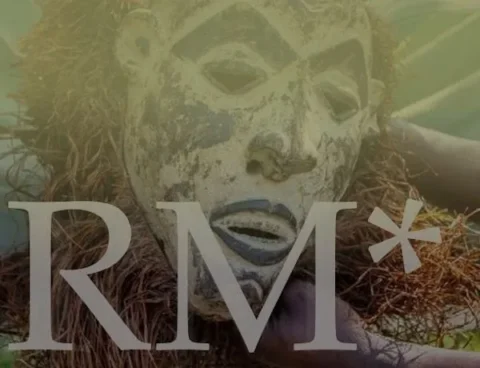France is currently debating the creation of a new legal framework for the restitution of publicly owned historical – and mainly colonial – collections, officially titled Bill on the return of cultural property from States that have been deprived of it as a result of illicit appropriation, presented on 30 July 2025. France is thus moving away from ad hoc laws that address restitution case by case – such as it did recently with Côte d’Ivoire – and toward a broader, permanent system. If the draft-bill is adopted, France would become the second country, after Belgium, to introduce a general restitution law, even if the colonial link is more explicit in the Belgian case.
Belgium took this step with the Act of 3 July 2022, officially titled Bill to Recognize the Alienability of Goods Linked to the Belgian State’s Colonial Past and to Establish a Legal Framework for Their Restitution and Return (hereafter the “Belgian Restitution Bill”). As Bert Demarsin and I have argued, this law is pioneering, even though it has not yet been applied in practice.

State-Centred Approach: Bilateral Agreements vs. Case-by-Case Requests
Like Belgium, the French draft-bill only allows claims brought by states, not by individuals, communities, or indigenous groups.
Belgium requires bilateral agreements with its former colonies. France, by contrast, sets out a detailed procedure in the bill itself and does not require a treaty – though restitution may still lead to future cultural cooperation. In practice, Belgium’s model is broader, while France’s is narrower, seemingly dealing with one object per request.
In both countries, restitution remains a political decision of the government. Courts cannot enforce it, except to control the decision is properly motivated. This differs from France’s procedure for illicitly exported cultural goods under the 1970 UNESCO Convention (Article L.124-1 of the Code du patrimoine), where restitution can be ordered judicially.
Both systems rely on expert advice. In France, an additional opinion from the Council of State is required, and if the object belongs to another public owner (not the state), their consent is also needed.
By involving the Council of State to assess whether a request is admissible and whether the object is eligible for restitution, the French draft-bill adds weight to the French perspective –French law remains the point of reference for the national administrative body – in the bilateral relations. In the Belgian law, even though the decision for restitution remains in the hands of the Belgian government, it can be based on legal or ethical arguments, taking Congolese law into consideration for instance.
Scope: Cultural Property from Former Colonies vs. Property Illicitly Removed from Any State
Material Scope
Both bills apply to public collections. The French draft-bill, however, is broader, while Belgium’s covers only federal collections, reflecting the country’s division of powers.
The French bill excludes certain categories: archaeological finds obtained through excavation agreements, “military goods” and public archives. Archives are excluded because they were produced by the state itself and thus cannot be considered as wrongfully removed. The Belgian bill also excludes archives (both public and private) from restitution agreements, but it would leave room for institutions to arrange restitution directly outside formal treaties, as has already happened with Rwanda.
Unlike Belgium, France explicitly includes human remains – at least those classified as cultural goods or transformed remains. In addition, France has a separate bill dedicated to returning human remains for funerary purposes (Bill of 26 December 2023), while Belgium failed to adopt such a draft-bill in 2024.

Geographical Scope
Another big difference is geographical. The French draft-bill allows requests from any foreign state, not only former colonies. Belgium’s law applies only to DR Congo, Rwanda, and Burundi.
The French bill does not use the word “colonial” in its text, but its explanatory memorandum connects the measure to restoring communities’ ties with their heritage and cites international instruments on the restitution of colonial-era objects.
Temporal Scope
France also adopts a broader timeline. It covers illicit acquisitions made between 1815 (Congress of Vienna) and 1972 (the international entry into force of the 1970 UNESCO Convention). Belgium restricts its scope to the colonial period (1885–1960/62), though with some flexibility.
A key innovation in the French bill is the decision to apply the UNESCO Convention to illicit exports retroactively from April 24, 1972 onwards, rather than from April 7, 1997 (when the Convention entered into force in France). Belgium, meanwhile, has not yet incorporated the Convention into its domestic law, despite ratifying it more than sixteen years ago.
Procedure: Provenance Research on Illegitimate vs. Illicit Acquisition
Both laws rely on provenance research carried out by mixed scientific commissions to guide decisions. In Belgium, the federal government is always the competent authority, while in France responsibility depends on which public body owns the object.
The main difference lies in the eligibility criteria.
- France restricts itself to illicit acquisition. Draft-Article L511-11, 2° states that restitution applies when there is “serious, specific and concordant evidence” that between 1815 and 1972 an object was “misappropriated by theft, pillage, transfer or gift obtained by duress or violence, or from a person not entitled to dispose of it”.
- Belgium is broader, covering also illegitimate acquisition. Article 4 specifies that this includes acquisitions under duress or in violent circumstances.
The distinction between “illicit” and “illegitimate” remains unclear. France provides an exhaustive list of what counts as an illicit acquisition, while Belgium lists examples. The French Council of State has already indicated in its general opinion on the draft bill that it is ready to help clarify the French criteria and assist the Government in drafting guidelines.
I argue in favour of a pluralistic approach to the notions of illicit and illegitimate acquisition and will develop this in upcoming research by elaborating a grid of acquisition types
The illicit acquisition of, for example, a stolen mask or an artwork purchased under duress could be recognized:
- under international law (e.g., military looting – though France’s exclusion of military objects could prevent many restitutions), or
- under colonial or national law (e.g., theft, though such laws were biased), or
- under local indigenous law (e.g., the prohibited gifting of a sacred object, often enclosed in oral customs).
The illegitimate acquisition of, for example, a collected ritual tool can be recognized under historical or under current ethical standards.
Belgium’s law already allows restitution of both illicitly and illegitimately acquired objects, with the latter including the former.
Both frameworks face the issue of cultural property classified as part of the public domain. Normally, such property is inalienable and permanently owned by the state, which would block restitution.
The Belgian bill explicitly allows exceptions to public domain rules so restitution can occur. The French draft bill provides a similar mechanism, ensuring that public domain status does not automatically block claims.

Restitution vs. Material Return
Only the Belgian bill makes an interesting distinction between restitution and physical return.
- Restitution is considered as the legal act of transferring ownership back to the claimant state.
- Material return is the actual handover of the object.
In some cases, ownership may be transferred even if the object remains temporarily in Belgium – for conservation, exhibitions, or ongoing research.
France has not considered such a split.
Conclusion
As the French draft-bill’s impact study notes: “With the principal exception of scope, which is closely tied to colonization and concerns only federal collections, the Belgian federal system that has been established shares numerous similarities with the present bill.”
Both frameworks are still at an early stage: the French one is yet to be adopted and the Belgian one is still awaiting the conclusion of a bilateral agreement – a draft was sent to the DR Congo in the fall of 2023. Their success will depend on how well they balance legal certainty, ethical responsibility, and diplomatic dialogue in the complex field of restitution.


